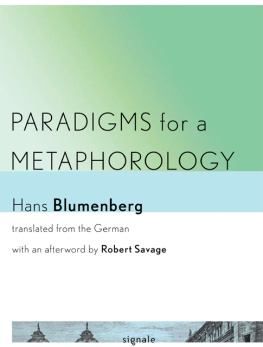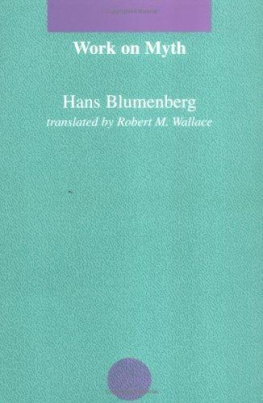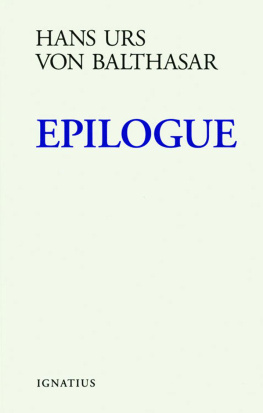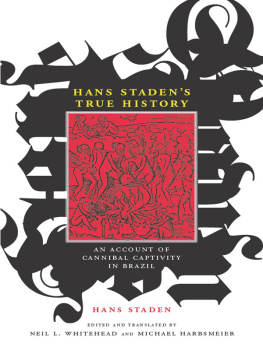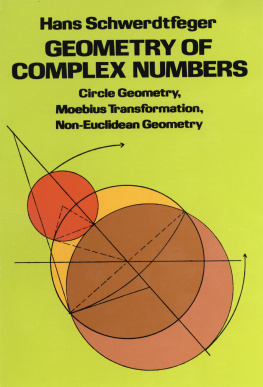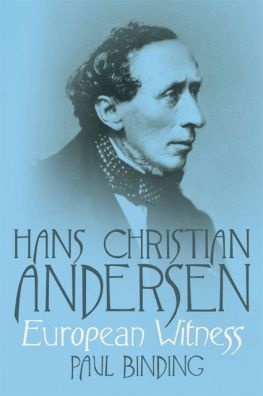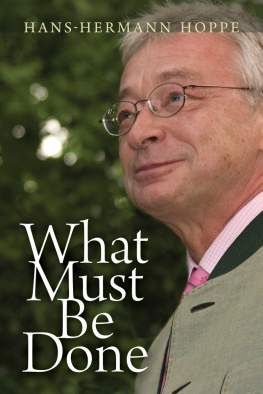Hans Blumenberg - Paradigms for a Metaphorology
Here you can read online Hans Blumenberg - Paradigms for a Metaphorology full text of the book (entire story) in english for free. Download pdf and epub, get meaning, cover and reviews about this ebook. year: 0, publisher: Cornell University Press, genre: Science. Description of the work, (preface) as well as reviews are available. Best literature library LitArk.com created for fans of good reading and offers a wide selection of genres:
Romance novel
Science fiction
Adventure
Detective
Science
History
Home and family
Prose
Art
Politics
Computer
Non-fiction
Religion
Business
Children
Humor
Choose a favorite category and find really read worthwhile books. Enjoy immersion in the world of imagination, feel the emotions of the characters or learn something new for yourself, make an fascinating discovery.
- Book:Paradigms for a Metaphorology
- Author:
- Publisher:Cornell University Press
- Genre:
- Year:0
- Rating:5 / 5
- Favourites:Add to favourites
- Your mark:
- 100
- 1
- 2
- 3
- 4
- 5
Paradigms for a Metaphorology: summary, description and annotation
We offer to read an annotation, description, summary or preface (depends on what the author of the book "Paradigms for a Metaphorology" wrote himself). If you haven't found the necessary information about the book — write in the comments, we will try to find it.
Paradigms for a Metaphorology — read online for free the complete book (whole text) full work
Below is the text of the book, divided by pages. System saving the place of the last page read, allows you to conveniently read the book "Paradigms for a Metaphorology" online for free, without having to search again every time where you left off. Put a bookmark, and you can go to the page where you finished reading at any time.
Font size:
Interval:
Bookmark:

Hans Blumenberg
Translated from the German with an afterword by Robert Savage
A Signale Book
Cornell University Press and Cornell University Library
Ithaca, New York
I have tried to follow the presentation of Blumenbergs text as closely as possible, generally only deviating from this principle where he quotes in Greek, Latin, Italian, or French. On these occasions I have provided English translations in the main text and consigned the original wording to the footnotes, except in the case of very short quotations, where the phrase in the original language follows in parentheses upon the English translation. My insertions in the text and notes are enclosed in square brackets. Unless otherwise noted, all translations are my own.
I wish to thank Bryan Cooke for insisting that I translate this book, Peter Uwe Hohendahl for accepting it for publication, David Roberts and Paul Fleming for offering valuable feedback, and Helen Slaney for sharing her expertise in Greek and Latin. During the revision process I benefited greatly from consulting Didier Gammelins French translation, Paradigmes pour une mtaphorologie (Paris: Vrin, 2006). An Ernst Keller Travelling Fellowship from the Australian Academy of the Humanities, combined with a Marbach Stipend, allowed me to spend a month at the Deutsches Literaturarchiv researching and writing the afterword; my thanks to Marcel Lepper for the friendly interest he showed in my work, and to Dorit Krusche for guiding me through Blumenbergs posthumous papers. Finally, I am grateful to Bettina Blumenberg, Henning Ritter, and Peter Rothacker for graciously granting me permission to quote from Blumenbergs unpublished postdoctoral dissertation, Die ontologische Distanz, and from his correspondence with Joachim Ritter and Erich Rothacker in my afterword.
Let us try for a moment to imagine that modern philosophy had proceeded according to the methodological program set out for it by Descartes, and had arrived at that definitive conclusion that Descartes himself believed to be eminently attainable. This end state of philosophy, which historical experience permits us to entertain only as a hypothesis, would be defined according to the criteria set out in the four rules of the Cartesian Discours de la mthode, in particular by the clarity and distinctness that the first rule requires of all matters apprehended in judgments. To this ideal of full objectification
Having arrived at its final conceptual state, however, philosophy would also have to relinquish any justifiable interest in researching the history of its concepts. Seen from the ideal of its definitive terminology, the value of a history of concepts can only be a critical and destructive one, a role it ceases to perform upon reaching its goal: that of demolishing the diverse and opaque burden of tradition, summarized by Descartes under the second of his fundamental critical concepts, prvention (corresponding to Francis Bacons idols). History is here nothing other than precipitancy ( prcipitation ) and anticipation ( prvention ), a failing of that actual presence whose methodical recuperation renders historicity null and void. That the logic of the first rule eviscerates history was first recognized by Giambattista Vico, who set against it the idea of a logic of fantasy. Vico proceeded from the assumption that the clarity and distinctness called for by Descartes were reserved solely for the creator in his relationship of insight to his work: verum ipsum factum. What remains for us mortals? Not the clarity of the given, but solely that of whatever we have made for ourselves: the world of our images and artifacts, our conjectures and projectionsin short, the universe of our imagination, in the new, productive sense of the term unknown to antiquity.
In the context of the task of a logic of fantasy there falls also, indeed in an exemplary fashion, a discussion of transferred speech or metaphor, a subject previously confined to the chapters on figures in handbooks of rhetoric. The traditional classification of metaphor among the ornaments of public speech is hardly fortuitous: for antiquity, the logos was fundamentally adequate to the totality of what exists. Cosmos and logos were correlates. Metaphor is here deemed incapable of enriching the capacity of expressive means; it contributes only to the effect of a statement, the punchiness with which it gets through to its political and forensic addressees. The perfect congruence of cosmos and logos rules out the possibility that figurative language could achieve anything for which common speech ( ) could not furnish an equivalent. In principle, the orator and poet can say nothing that could not just as well be presented in a theoretical, conceptual way; only how they say it is specific to them, not what is said. The possibility and potency of persuasive speech had been one of the elemental experiences of life in the polisso elemental, in fact, that Plato could present the decisive phase of his mythic cosmogony in the Timaeus as the rhetorical act by which Necessity ( Ananke ) was swayed. It is difficult for us today to overestimate the importance of rhetoric, an importance that explains just how crucial it was that philosophy interpret persuasive force as a quality of truth itself, and oratory, with all its tools of the trade, as nothing but the fitting implementation and amplification of that quality. The battles fought over the functional classification of rhetoric, the contestation of the Sophistic claim of autonomy for the technique of persuasion: these were fundamental processes in the ancient history of philosophy that we have barely even begun to investigate. The Platonic subordination of rhetoric, sealed by the church fathers, definitively transformed the objects traditionally assigned to rhetoric into the merely technical armaments of persuasive means, even if these were now to be found stockpiled in the armory of truth itself. Whether the rhetorical artifice of translatio could do anything more than arouse pleasure in the truth to be communicated remained undiscussed. Of course, the fact that this question was not asked and could not be asked does not mean that metaphors had not in fact always already yielded such a surplus of expressive achievement. Otherwise the task of a metaphorology would be doomed from the outset; for we will see, curiously enough, that the reflective discovery of the authentic potency of metaphorics devalues the metaphors produced in the light of that discovery as objects of a historical metaphorology. Our analysis must be concerned with detecting the logical perplexity for which metaphor steps in, and an aporia of this kind is most conspicuously evident precisely where it is not admitted by theory in the first place.
These historical remarks on the concealment of metaphor lead us to the fundamental question of the conditions under which metaphors can claim legitimacy in philosophical language. Metaphors can first of all be leftover elements, rudiments on the path from mythos to logos; as such, they indicate the Cartesian provisionality of the historical situation in which philosophy finds itself at any given time, measured against the regulative ideality of the pure logos. Metaphorology would here be a critical reflection charged with unmasking and counteracting the inauthenticity of figurative speech. But metaphors can alsohypothetically, for the time beingbe foundational elements of philosophical language, translations that resist being converted back into authenticity and logicality. If it could be shown that such translations, which would have to be called absolute metaphors, exist, then one of the essential tasks of conceptual history (in the thus expanded sense) would be to ascertain and analyze their conceptually irredeemable expressive function. Furthermore, the evidence of absolute metaphors would make the rudimentary metaphors mentioned above appear in a different light, since the Cartesian teleology of logicization in the context of which they were identified as leftover elements in the first place would already have foundered on the existence of absolute translations. Here the presumed equivalence of figurative and inauthentic speech proves questionable; Vico had already declared metaphorical language to be no less proper than the language commonly held to be such, only lapsing into the Cartesian schema in reserving the language of fantasy for an earlier historical epoch. Evidence of absolute metaphors would force us to reconsider the relationship between logos and the imagination. The realm of the imagination could no longer be regarded solely as the substrate for transformations into conceptualityon the assumption that each element could be processed and converted in turn, so to speak, until the supply of images was used upbut as a catalytic sphere from which the universe of concepts continually renews itself, without thereby converting and exhausting this founding reserve.
Font size:
Interval:
Bookmark:
Similar books «Paradigms for a Metaphorology»
Look at similar books to Paradigms for a Metaphorology. We have selected literature similar in name and meaning in the hope of providing readers with more options to find new, interesting, not yet read works.
Discussion, reviews of the book Paradigms for a Metaphorology and just readers' own opinions. Leave your comments, write what you think about the work, its meaning or the main characters. Specify what exactly you liked and what you didn't like, and why you think so.

